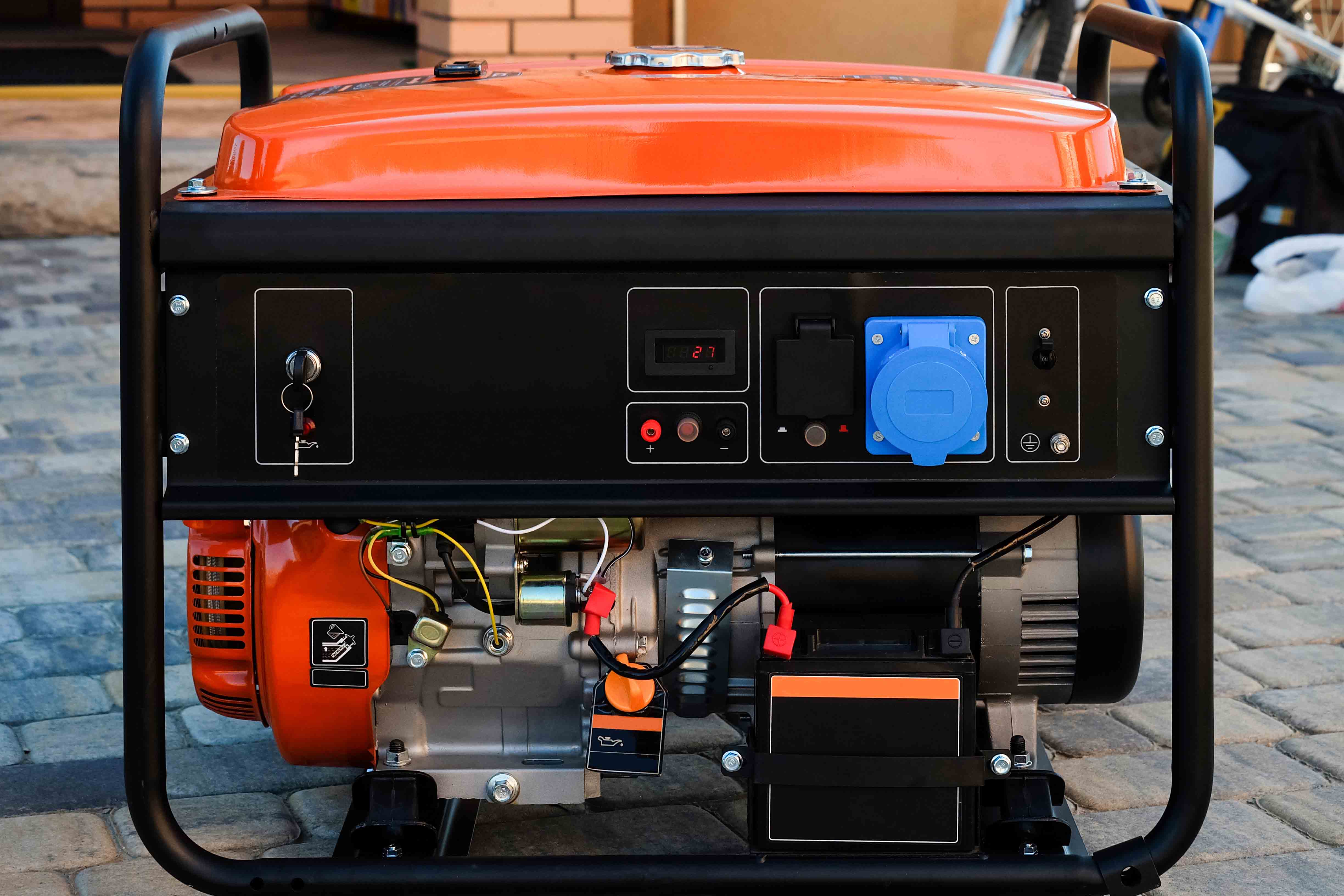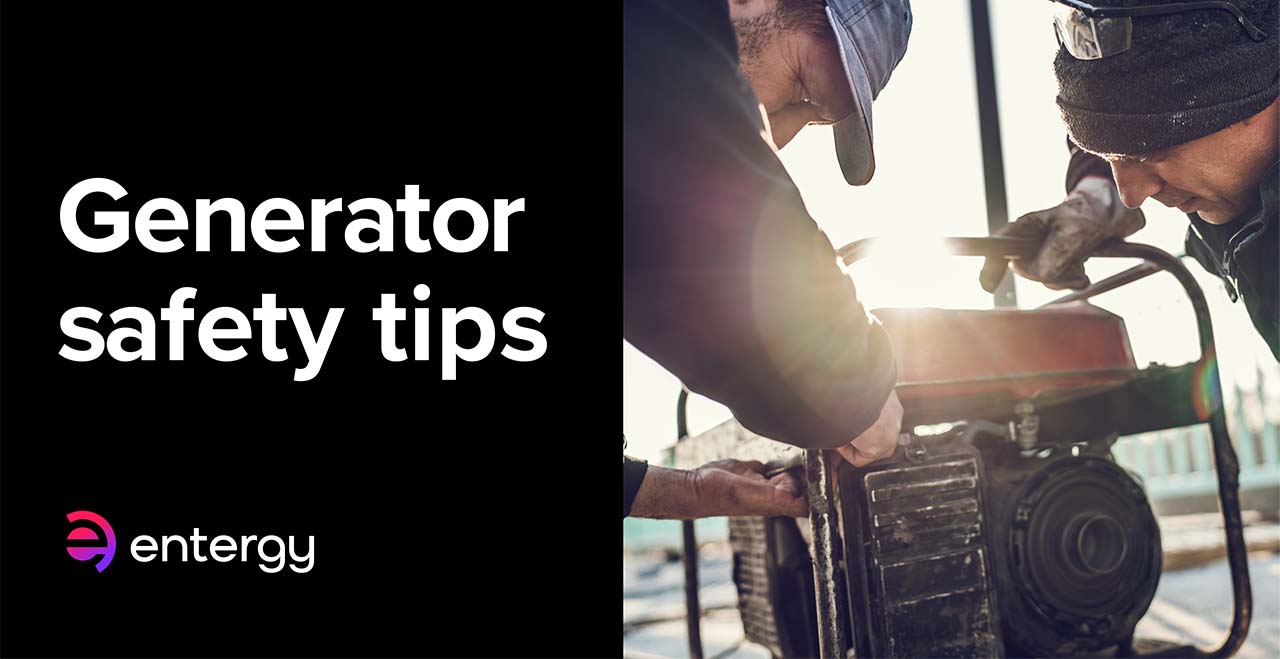No, you do not need to ground a portable generator when using it with just extension cords. However, if the generator is connected to a structure via a transfer switch, it must be connected to a grounding electrode system, such as a driven ground rod.
This is to ensure the safe and proper functioning of the generator and to prevent electrical overload or damage to the wiring. Grounding a portable generator involves connecting its neutral electric conductor terminals to the ground using a low-resistance metal wire.
This helps to redirect any potential electrical faults and protect both the generator and the connected structure from harm. Failure to ground a generator can lead to hazardous situations and damage to the generator’s components or sensitive electrical devices.
Why Grounding A Portable Generator Is Important
When connecting a portable generator to a structure, such as a home or office, it is important to ground it. This can be done by connecting it to a grounding electrode system, like a driven ground rod. Grounding a portable generator ensures safety and prevents electrical hazards.
Why Grounding a Portable Generator is Important Grounding a portable generator is crucial for safety reasons. By connecting the generator to a grounding electrode system, such as a driven ground rod, you can protect against electrical shocks and fires. When a portable generator is providing electric power to a structure through a transfer switch, it must be grounded. This applies to homes, offices, shops, trailers, or similar structures. If you are simply using extension cords with the generator, you do not need to use a ground rod, as long as the generator has a bonded neutral. Grounding a generator involves connecting its neutral electric conductor terminals to the ground using a low-resistance metal wire. This helps to prevent the buildup of excess electrical current and reduces the risk of electrical accidents. While some small portable generators may not require grounding in certain situations, it is generally recommended to ground all generators to ensure safe operation. Remember, permanent generators do require grounding, and the national regulations enforce this. Overall, grounding your portable generator is an important safety measure that should not be overlooked.Grounding Requirements For Portable Generators
| Do You Ground a Portable Generator |
If the portable generator is providing electric power to a structure by connection via a transfer switch to a structure (home, office, shop, trailer, or similar) it must be connected to a grounding electrode system, such as a driven ground rod. Grounding is connecting your generator’s neutral electric conductor terminals to the ground using a low-resistance metal wire. The copper grounding wire moves the excess electrical current safely away from the generator and into the ground. This helps prevent electrical shock and protects electrical appliances and equipment.
OSHA guidelines state that portable generators used to power tools and electrical equipment on construction sites must be grounded according to OSHA regulations. Generac Power Systems also recommends grounding portable generators for safety and compliance with electrical codes.
It is important to note that if you are simply running extension cords to the generator, you may not need to use a ground rod. However, if you are connecting the generator to a structure, grounding is necessary to ensure safety.
When To Ground A Portable Generator
If the portable generator is providing electric power to a structure by connection via a transfer switch to a structure (home, office, shop, trailer, or similar) it must be connected to a grounding electrode system, such as a driven ground rod. Grounding is connecting your generator’s neutral electric conductor terminals to the ground using a low-resistance metal wire. The copper grounding wire moves.
When using just the extension cords, you do not need to use a ground rod. If you are simply running extension cords to the generator, it must be grounded legally. It’s legal to share grounds. You do that by running.
While some small portable generators may not require grounding in certain situations, it is generally recommended to ground all generators to prevent any potential electrical hazards. Permanent generators, on the other hand, do need to be grounded along with bonding the neutral to the ground conductor as per national regulations.
Whether you need a grounding rod and grounding wire for a generator ultimately depends on the generator and how it is used. If the generator is connected to a house via a transfer switch, it is typically grounded through the ground wire in the power cable that runs from the generator to the structure.
How To Ground A Portable Generator Safely: A Step-by-step Guide
If the portable generator is providing electric power to a structure by connection via a transfer switch to a structure (home, office, shop, trailer, or similar) it must be connected to a grounding electrode system, such as a driven ground rod. Grounding is connecting your generator’s neutral electric conductor terminals to the ground using a low-resistance metal wire. The copper grounding wire moves the electric charge from the generator to the ground to prevent electrical shock and protect your electrical equipment.
To ground a portable generator, you will need:
- A grounding electrode system (e.g., driven ground rod)
- A copper grounding wire
Before connecting the generator, ensure that you have a suitable grounding electrode system, such as a driven ground rod, in place. Consult the manufacturer’s guidelines or seek professional advice if needed.
Connect the generator’s neutral electric conductor terminals to the grounding electrode system using the copper grounding wire. Ensure a secure connection and avoid any loose or exposed wires.
Verify that the connection between the generator’s grounding conductor and the grounding electrode system is low-resistance. This ensures efficient grounding and prevents electrical hazards.
Understanding Legal Grounding Requirements
If the portable generator is providing electric power to a structure by connection via a transfer switch to a structure (home, office, shop, trailer, or similar) it must be connected to a grounding electrode system, such as a driven ground rod. Grounding Requirements for Portable Generators – OSHA. Does my portable generator need to be grounded? – Generac Power Systems. It depends on the application. When using just the extension cords, you do not need to use a ground rod. (If you have a bonded neutral portable generator. When You DO and DO NOT Need to Ground Your Generator [Extension Cord Use & Backfeeding a Home] – YouTube. … portable generator. It details when a homeowner must… 18:30 How to Ground a Portable Generator Safely: A Step-by-Step Guide. Grounding is connecting your generator’s neutral electric conductor terminals to the ground using a low-resistance metal wire. The copper grounding wire moves… Is it safe to ground a portable generator using the house ground at the service panel? If you are simply running extension cords to the generator, it must be grounded legally. It’s legal to share grounds. You do that by running… Does my generator interlock require a ground rod? – Home Improvement Stack Exchange. To use any generator with the house inlet, may one leave the generator ground wire unconnected in the inlet? Portable Generator Grounding – Home Improvement Stack Exchange. Should I Ground a Generator Powering an UPS? – Home Improvement Stack Exchange. How many of you ground your portable generator – RV.Net Open Roads Forum. Permanent generators DO need to be grounded. Permanent generators also have the neutral bonded to the ground conductor. That is the national regulations on this… How to Ground a Portable Generator – Needs, Requirements and Process. NO, you don’t always need to ground your generator. The choice of whether to ground a generator depends on the generator and how it is used. Grounding Requirements for Portable Generators – JADE Learning. If connected to a house via a transfer switch, a generator is grounded by the ground wire in the power cable that runs from the generator to the… Do I Need to Ground My Generator When Camping? – ElectronicsHub. While some small portable generators may not require grounding in certain situations, it is generally recommended to ground all generators to… Is grounding a portable generator necessary? What happens if you don’t ground a generator? – Quora. Portable generators are not normally grounded because the loads are plugged directly into the sockets on the generator. If a portable generator is used

Credit: www.grainger.com
Grounding Considerations For Permanent Generators
Grounding a portable generator is essential for safety purposes, especially when it is connected to a structure such as a home or office. The generator needs to be connected to a grounding electrode system, such as a driven ground rod, to ensure that any electrical faults are safely directed to the ground. However, when using the generator with just extension cords, grounding may not be necessary. It is important to check the generator’s specifications and follow national regulations, as permanent generators require grounding and have the neutral bonded to the ground conductor. While some small portable generators may not require grounding in certain situations, it is generally recommended to ground all generators to ensure safe operation. Neglecting to ground a generator can lead to potential electrical hazards, including electric shocks and electrical fires, so it is best to follow the proper grounding procedures and guidelines prescribed by experts and manufacturers.
Situations Where Grounding A Portable Generator May Not Be Necessary
Grounding a portable generator may not be necessary in certain situations, such as when using just extension cords without a transfer switch or when the generator is powering small loads directly through its sockets. However, it is generally recommended to ground all generators for safety purposes.
| If the portable generator is providing electric power to a structure by connection via a transfer switch to a structure (home, office, shop, trailer, or similar), it must be connected to a grounding electrode system, such as a driven ground rod. |
Frequently Asked Questions For Do You Ground A Portable Generator
What Happens If You Don’t Ground A Portable Generator?
Grounding a portable generator is essential for safety reasons. Failure to ground it can result in electrical overload, damaging the generator’s wiring and sensitive components. Additionally, without proper grounding, there is an increased risk of electric shock and fire hazards.
Ensure that your portable generator is connected to a grounding electrode system, such as a driven ground rod, especially when powering a structure via a transfer switch.
How Do You Properly Ground A Portable Generator?
To properly ground a portable generator, you need to connect it to a grounding electrode system, such as a driven ground rod. This is necessary when the generator is providing electric power to a structure through a transfer switch. If you are using extension cords, grounding may not be required.
Remember to follow the manufacturer’s instructions and ensure the generator is connected safely to avoid electrical hazards.
Do You Need To Ground A Portable Generator?
If the portable generator is connected to a structure via a transfer switch, it must be connected to a grounding electrode system, such as a driven ground rod. However, if you’re using just extension cords, you do not need to use a ground rod.
How Do You Ground A Portable Generator Safely?
Grounding a portable generator involves connecting its neutral electric conductor terminals to the ground using a low-resistance metal wire. This helps prevent electrical shocks and ensures safety during operation.
Conclusion
When using a portable generator to power a structure, such as a home or office, it is crucial to follow grounding requirements for safety purposes. Connecting the generator to a grounding electrode system, like a driven ground rod, ensures that any excess electrical current is safely redirected into the ground.
Failure to ground a generator can result in electrical overload and damage to the generator or electrical system. While smaller generators used with extension cords may not require grounding, it is generally recommended to ground all generators for added safety.
It is always better to err on the side of caution when it comes to electrical equipment.

